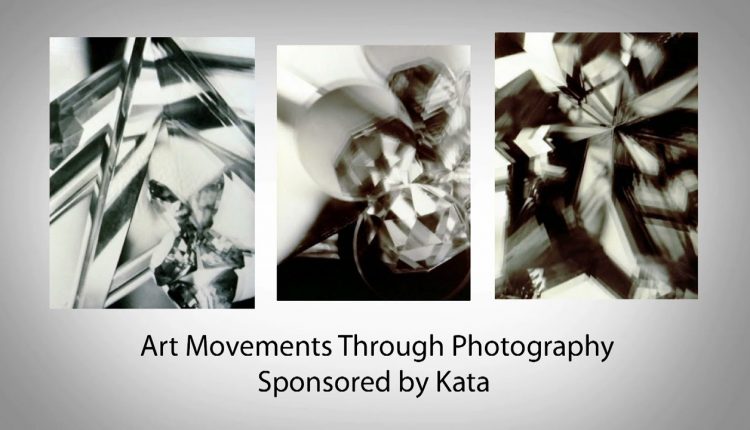Art Movements Through Photography
** Click the show more button below for more info and links**
Sponsored by Kata
Throughout Photographic History, there have been very different Art Movements, each with its own style and purpose. Through these Movements we find diverse photographic techniques, aesthetics and ideas offered. In this class, we will look at several Art Movements in the history of Photography, the photographers involved in each, and examine the visual style that pervaded each Movement. By studying these Art Movements and the photographers and artists who inspired them we can find a source for our own creativity and ideas for our own photographic work.
Eileen Rafferty’s Work

The art movements are growing……there is light painting photography….which fits perfectly in the definition of a movement!
Great content. I wish they could have done like eight one hour episodes. Where Eileen could have dug deeper into each movement. Nevertheless, thanks to B&H for promoting such educational content.
Well done !
In the meantime the rest of the americas, the middle east, africa and asia were standing around looking confused.
Thanks too this dude who kept asking his geeky questions there was no time left to cover modern movements.
I really enjoy the presentation. She has the knowledge and carisma! Thank you!!
Very clear and comprehensive.
Thanks so much.
NeepSay ? Yikes! I wanted to show this to my photo students… Nee-Eps — Help this woman
A very informative lecture, one which has always been missing in photography world.
I was thinking of adding Persian subtitle to it but the public contribution is disabled on this video. How can I do it otherwise?
THANKS – SOME OF THESE IF KNEW MANY I DIDNT SO THANKS FOR INTRODUCING ME TO SOME GREAT NEW STUFF….
Like this!!
In the stage that you have set, they are just trying sell their products by elevating their selling point. That is not "killing art". Its just that their target customer is a common man. Artists were there when there are brushes, then they embraced pencil as well. I like the seminar, by the way. Thank you
what a brilliant doc!! THANKS
i am here in the USA on my 3 rd visit & what you said at min 54 abt USA is so true.
otto steinert part ,the first photo not belong to him ,its Peter Keetman`s .also a Subjective photography movment member .
You can only real appreciate black and white photograph if you see the actual photo it's self.
The Moholoy-Nagy photo isn't the Eiffel Tower, it's a 1928 photo of the Berlin Radio Tower. Otherwise I enjoyed the presentation.
Regarding the first question asked: I believe the first 1888 and 1889 Kodak camera photographs were round and no matting was involved. The Kodak No.1 were 2.5 inches in diameter and the No.2 were 3.5 inches in diameter. According to Camerapedia: "A hundred round negatives with a diameter of 65mm came from each roll of Eastman American Film. The round image was a design decision, partly as a way of ensuring that the photographer didn't have to hold the camera exactly level with the horizon, and partly to compensate for the poor image quality at the corners of the image.”
Straight photographer (so call purist), like Ansel Adams, heavily modified their pictures while printing, and Cartier Bresson did sketch some of his pictures, so we could say they were sometimes a like little hypocrite. Still, great masters of photography without a doubt. What I want to say is: don't do things just because some movement say so. Find what actually moves YOU. And use any means to reach your photographic style.
just a quick comment, "secession" is not pronounced like "succession".
Well educative content, thank you.
Thanks. This is a great class that I needed it.
Nice lecture..
For me,to knowing Steichen,P.Stand and A.Stieglitz -at least-separate the Photographers from the camera owners.. 😉
I would love to see a 2 hour presentation in what she was not able to show post-modernism. She was great.
Great presentation. Spend the time with this one.
What is her name, the presenters, and where can I get her slides?
Really really good lecture!! Thanks so much!
It is boring for the average amateur photographer like me. She was passing many important periods of photography very quickly. Also see was looking tired and lazy.
Very interesting lecture. Informative and comprehensive. The guy sitting at the front who insists on practicing photography during the presentation is rather irritating. He should have been told to stop what he was doing.
very comprehensive two century history within the limitations of a two hour time frame. Her discussion of the 19th and early 20th century would best have made mention of the Pre-Raphaelites which strongly influenced several of the photographers she featured. Indeed they attempted to replicate this style of painting in their photography. But this is not meant as criticism of the task she accomplished.
Fantastic video. It gave a perspective of the different movements of photography. It also gives me an understanding of why some photos are made the way they are. Thank you Eilleen.